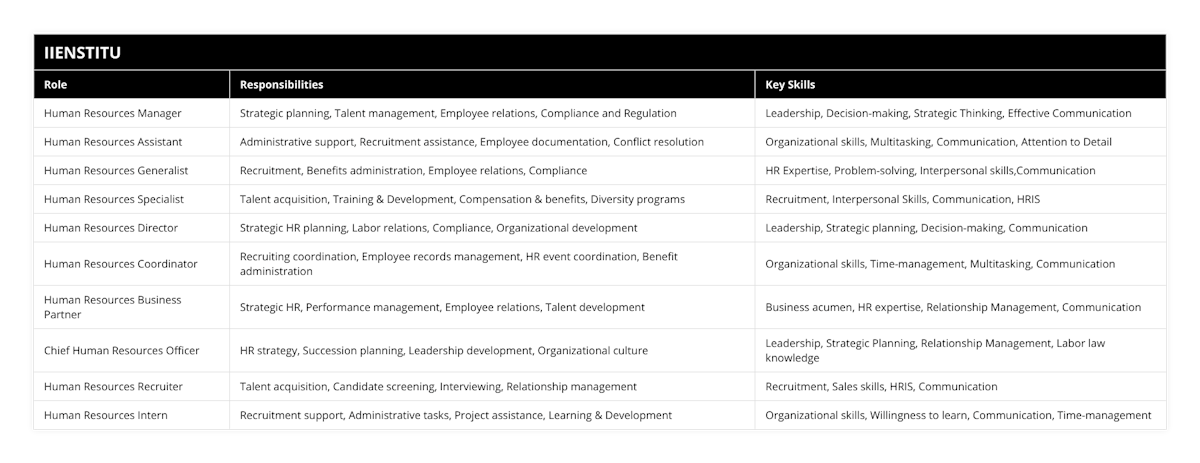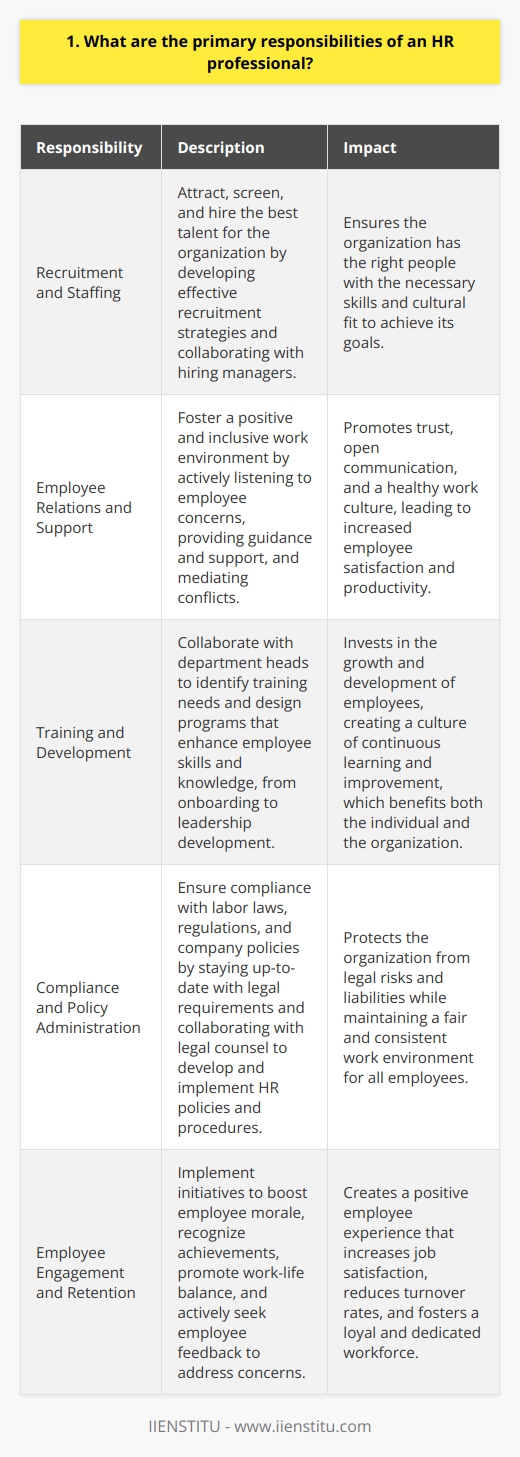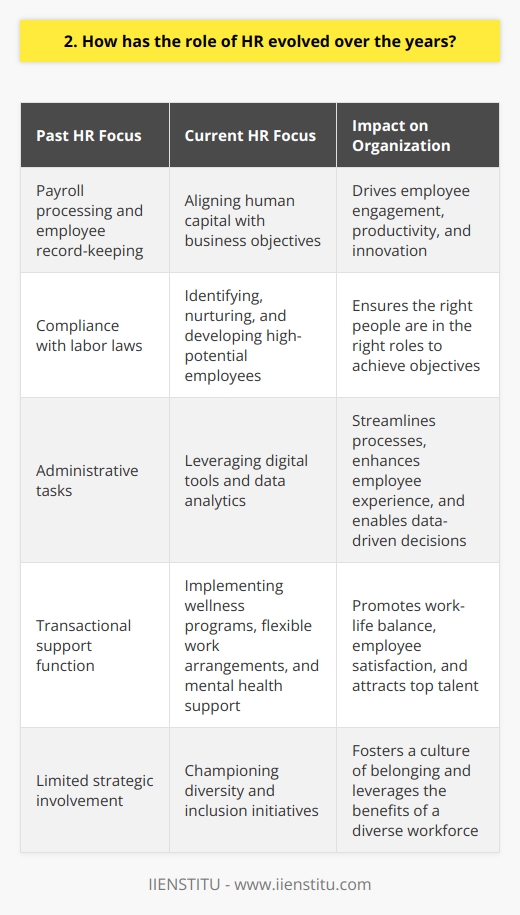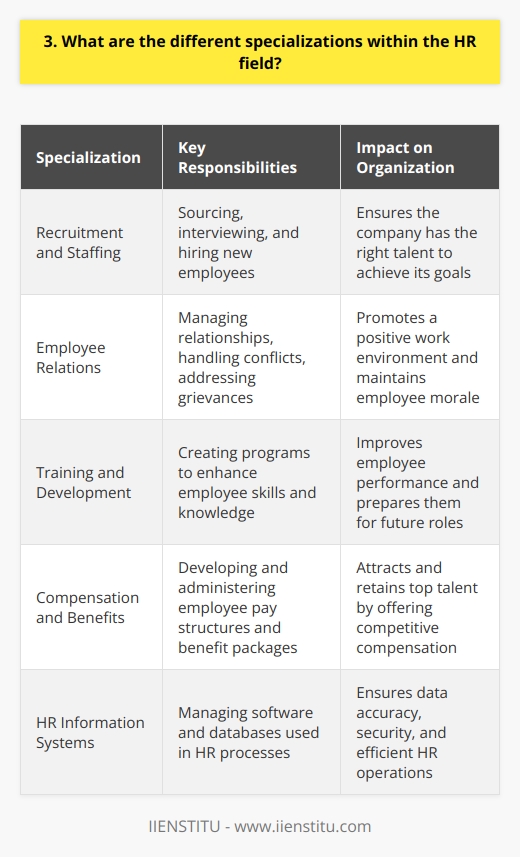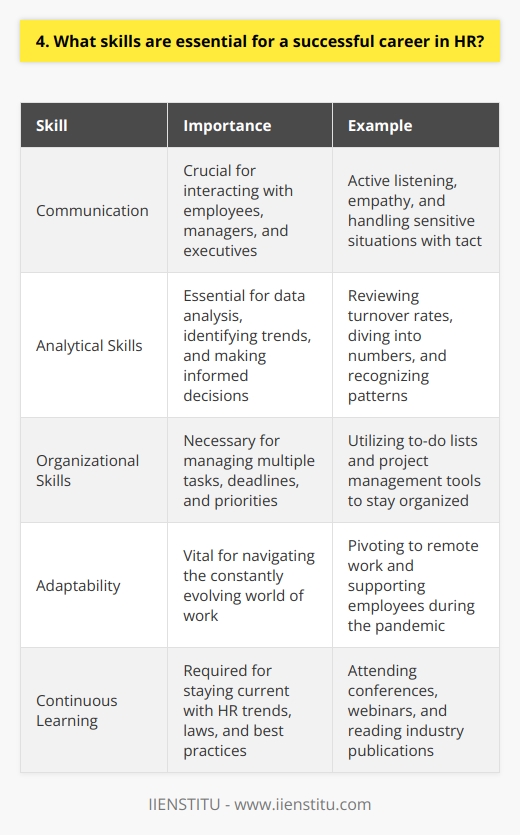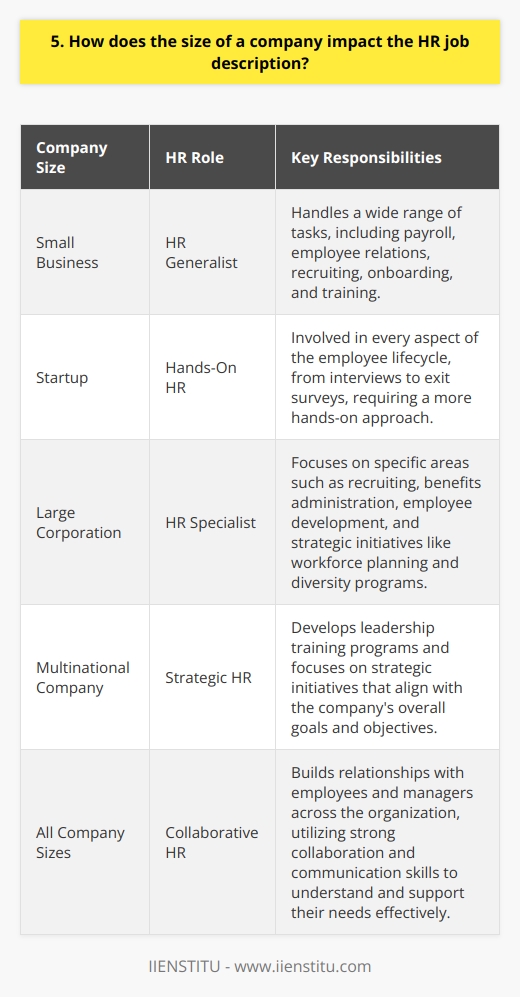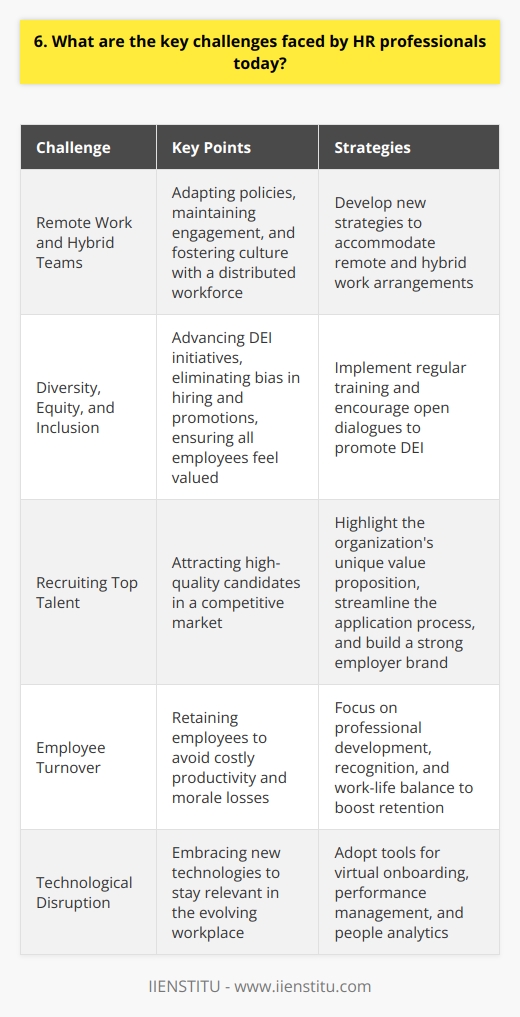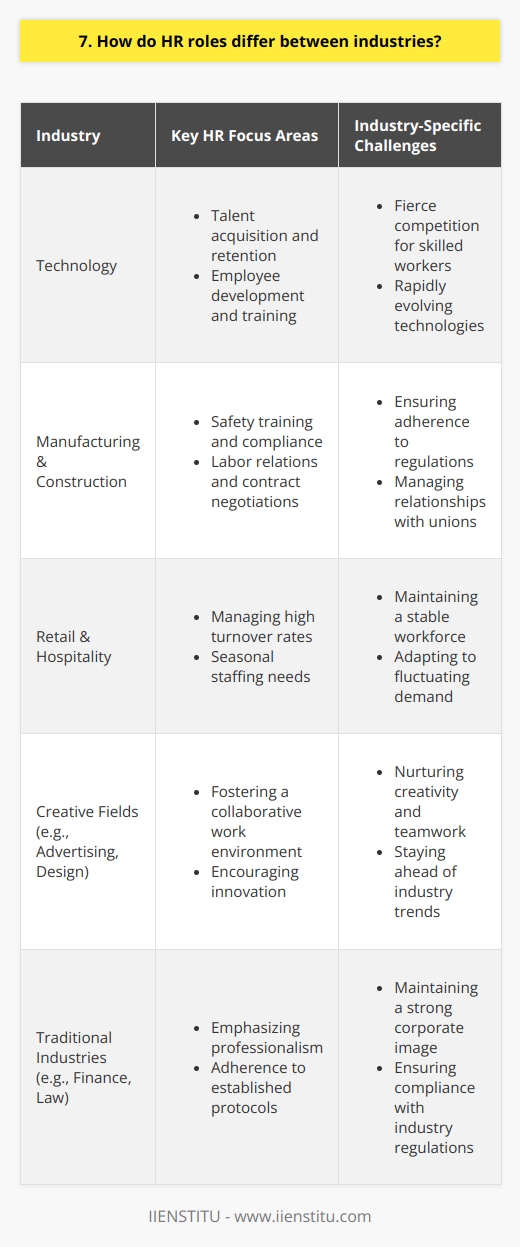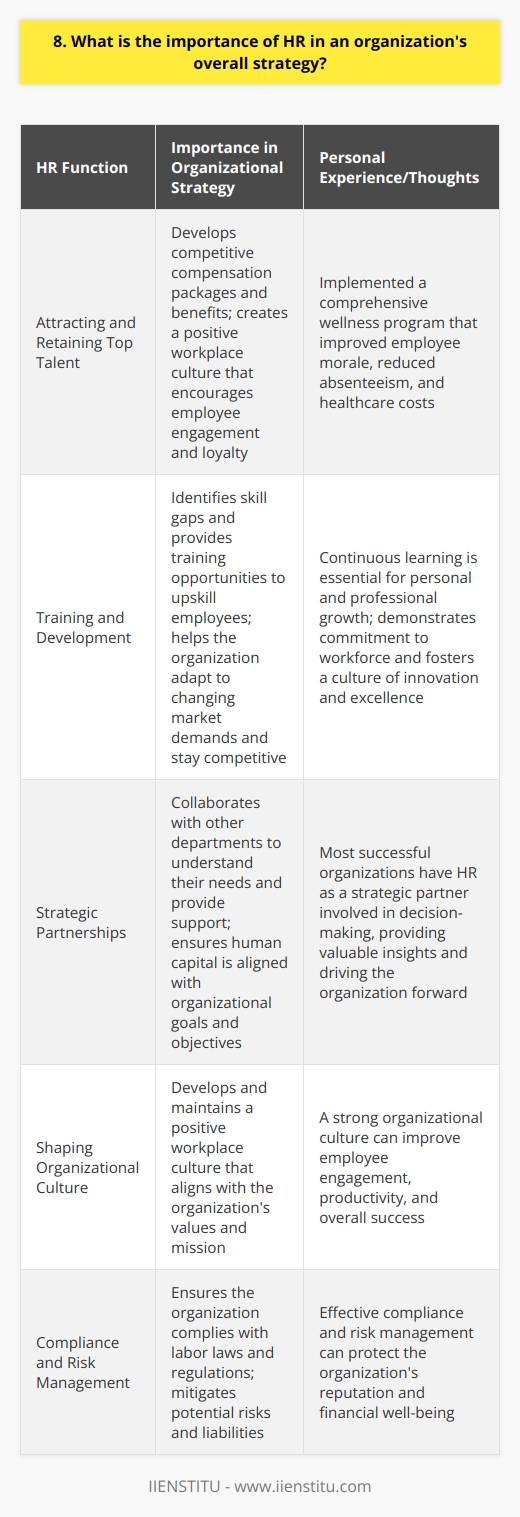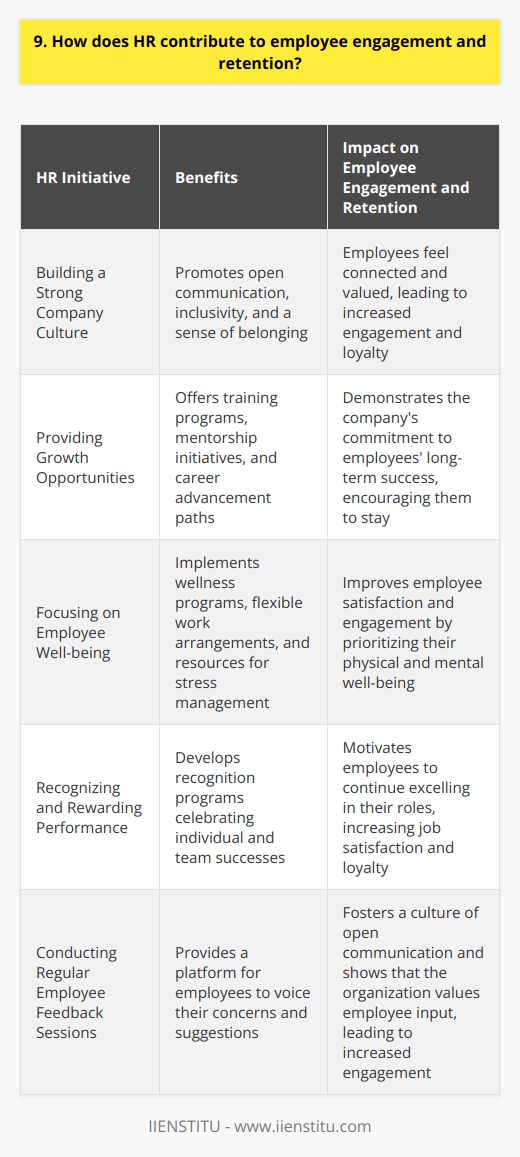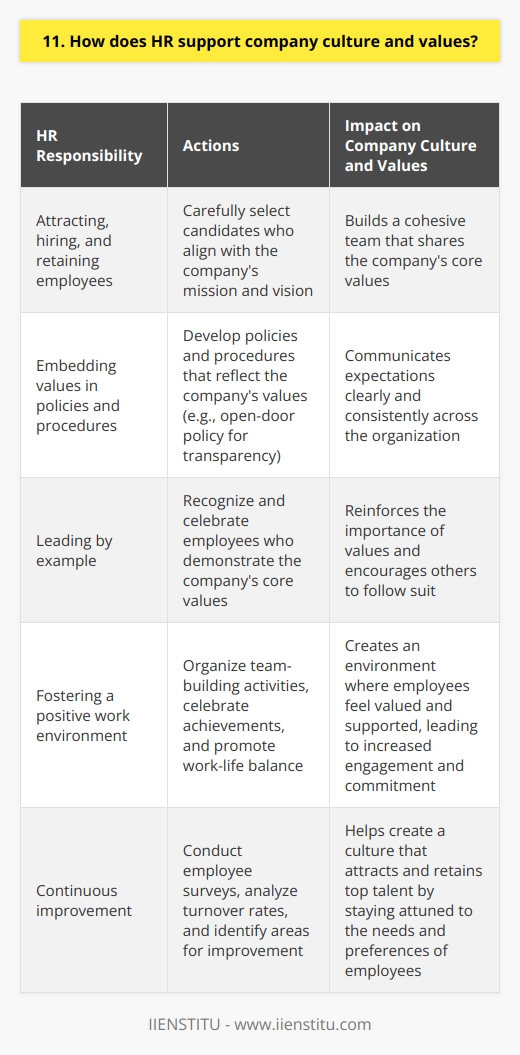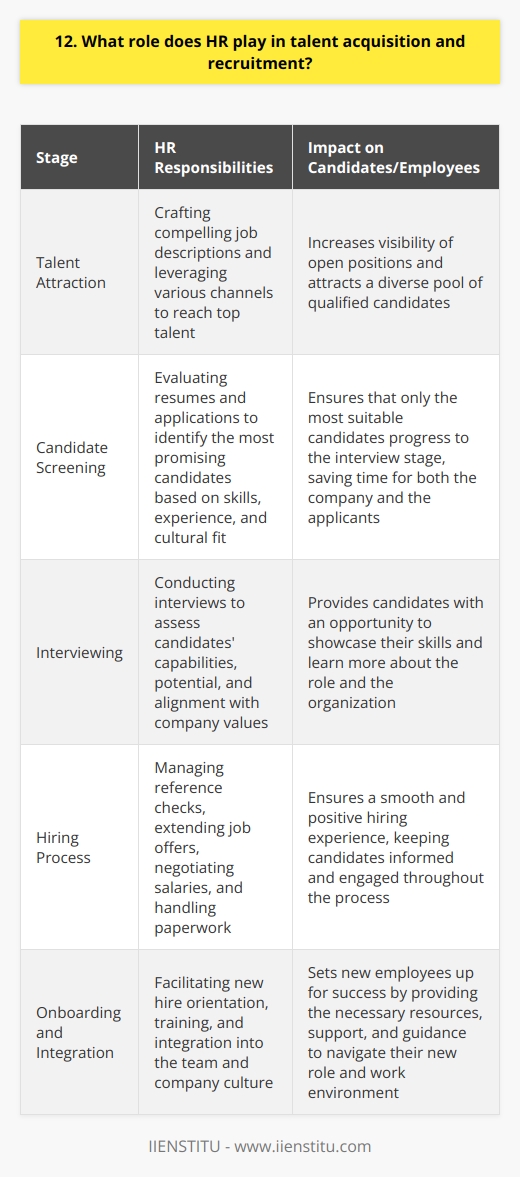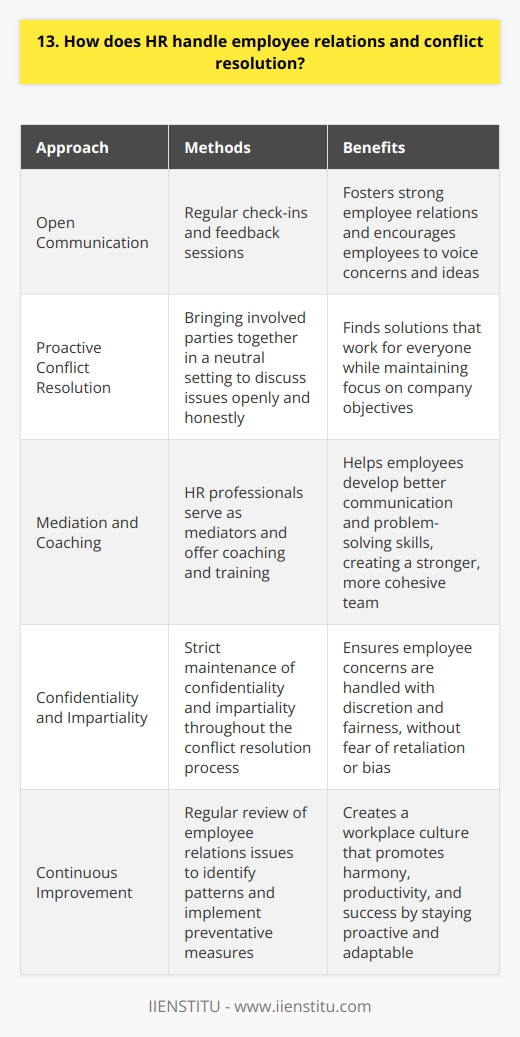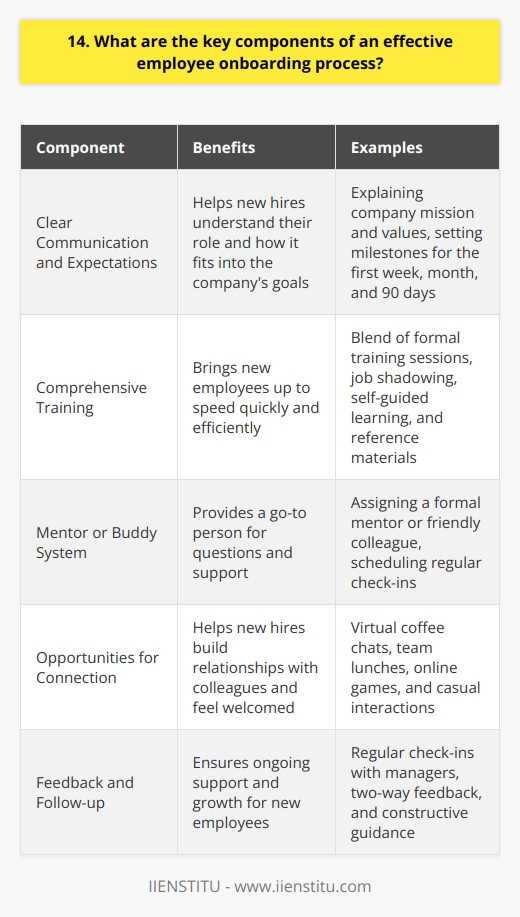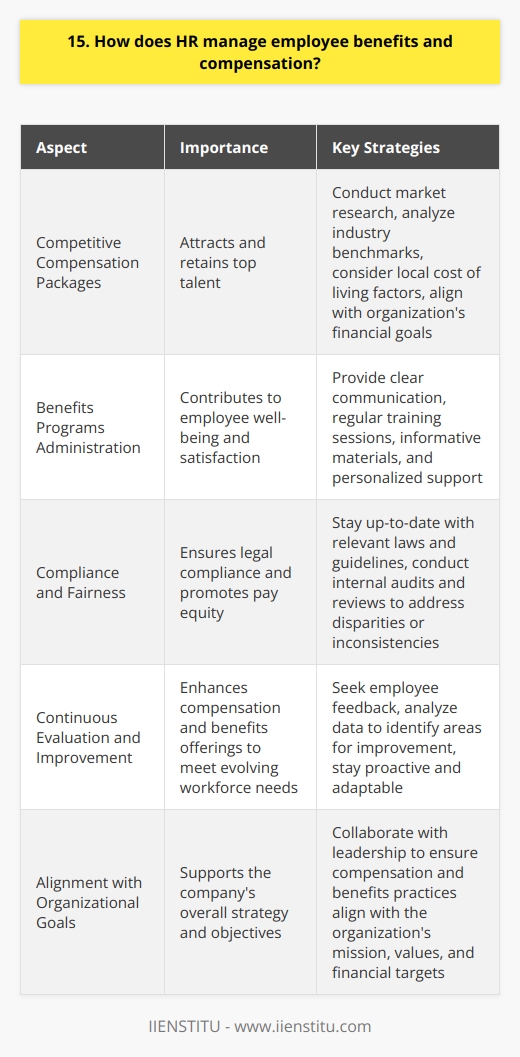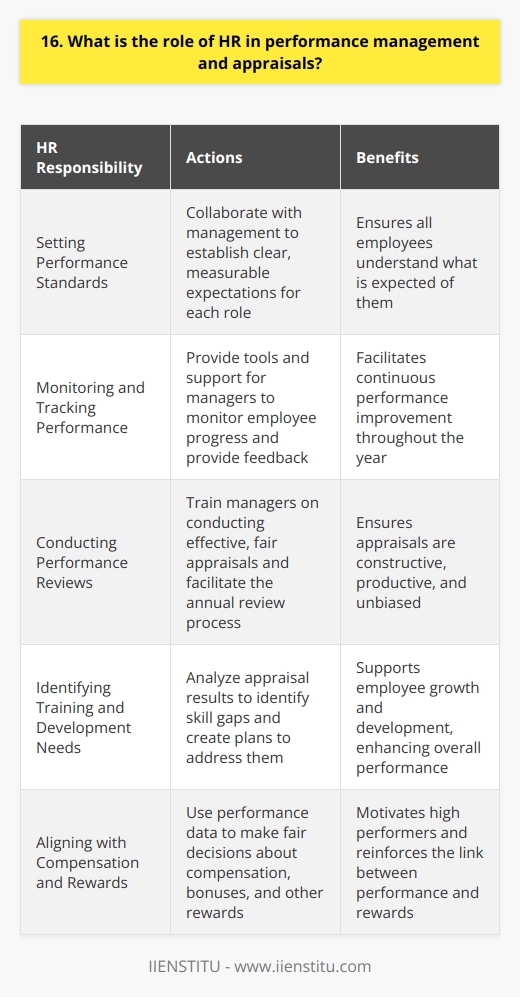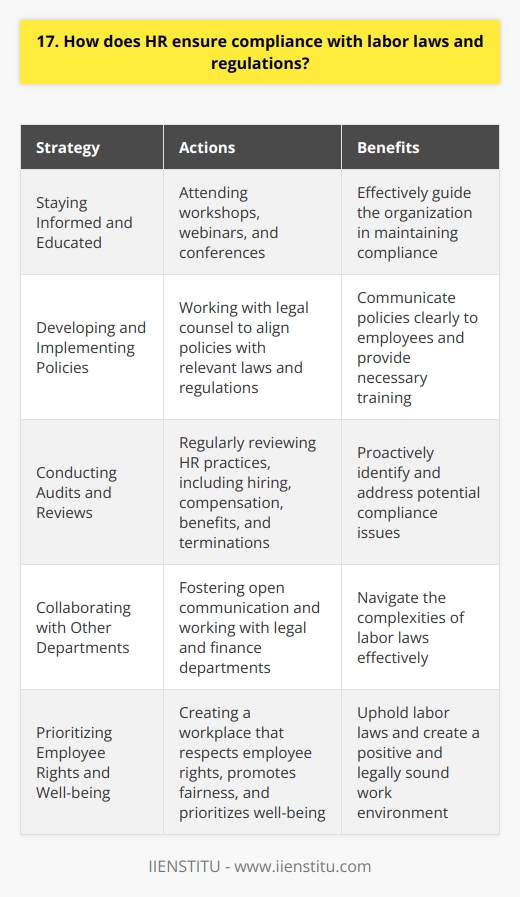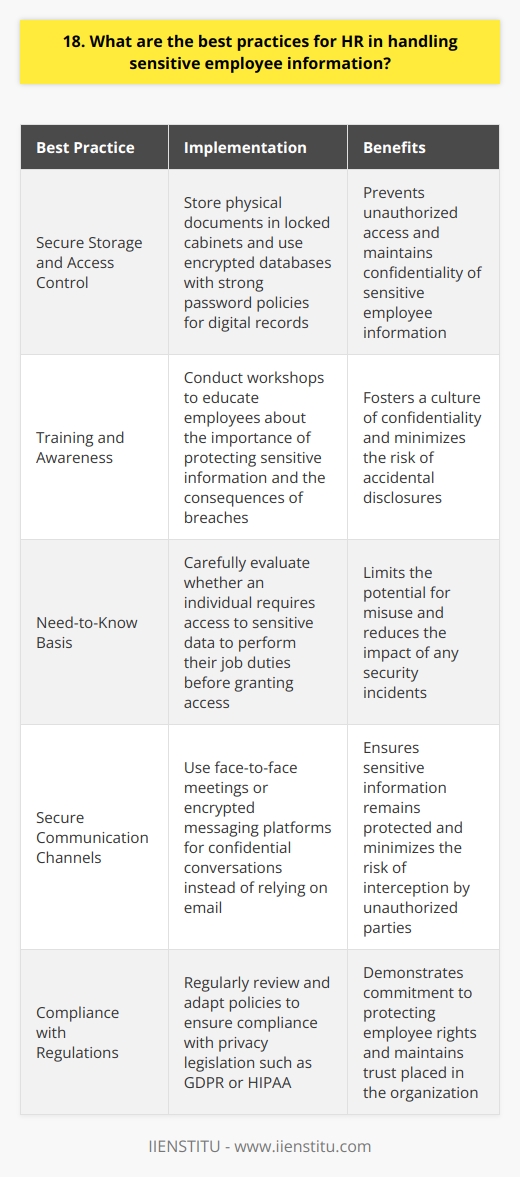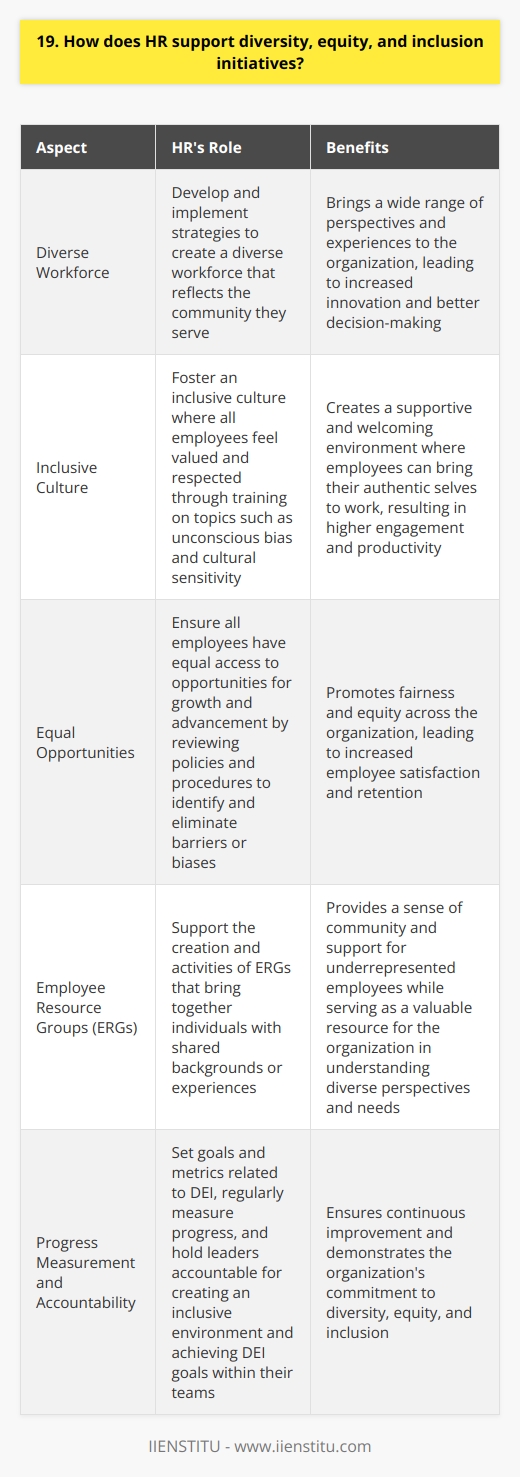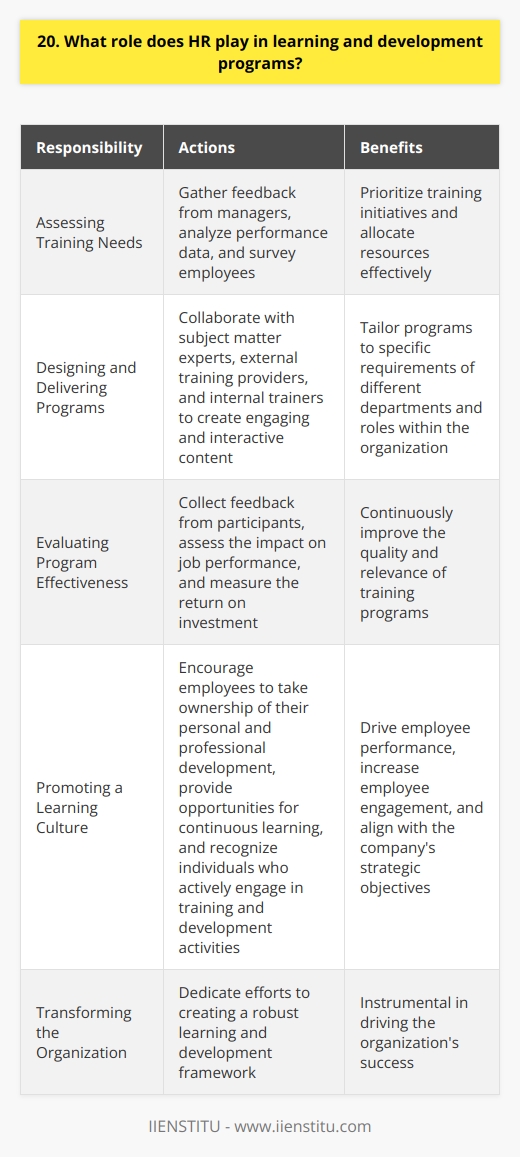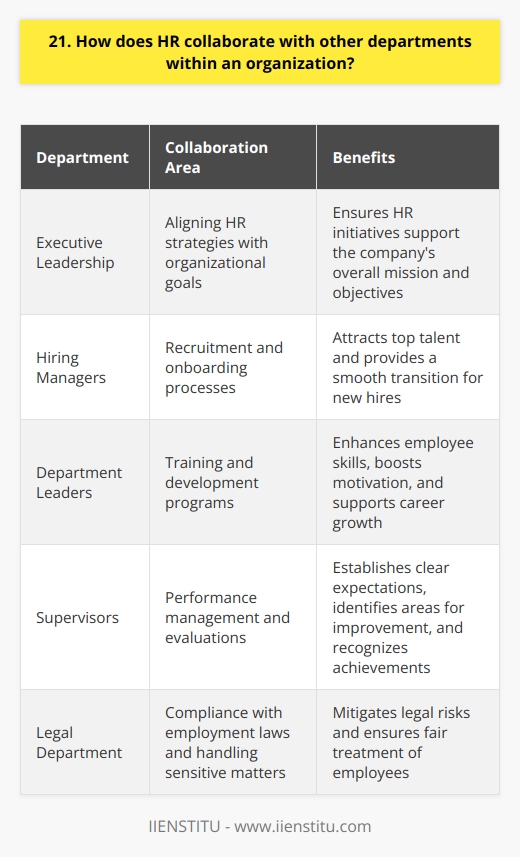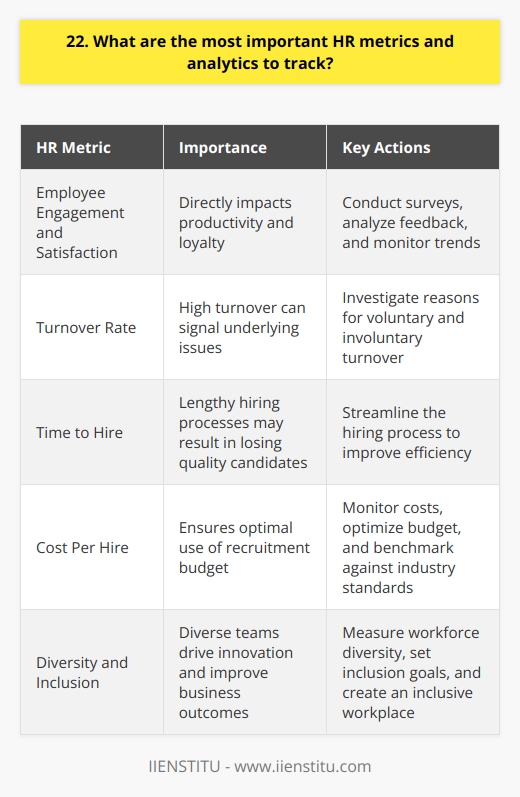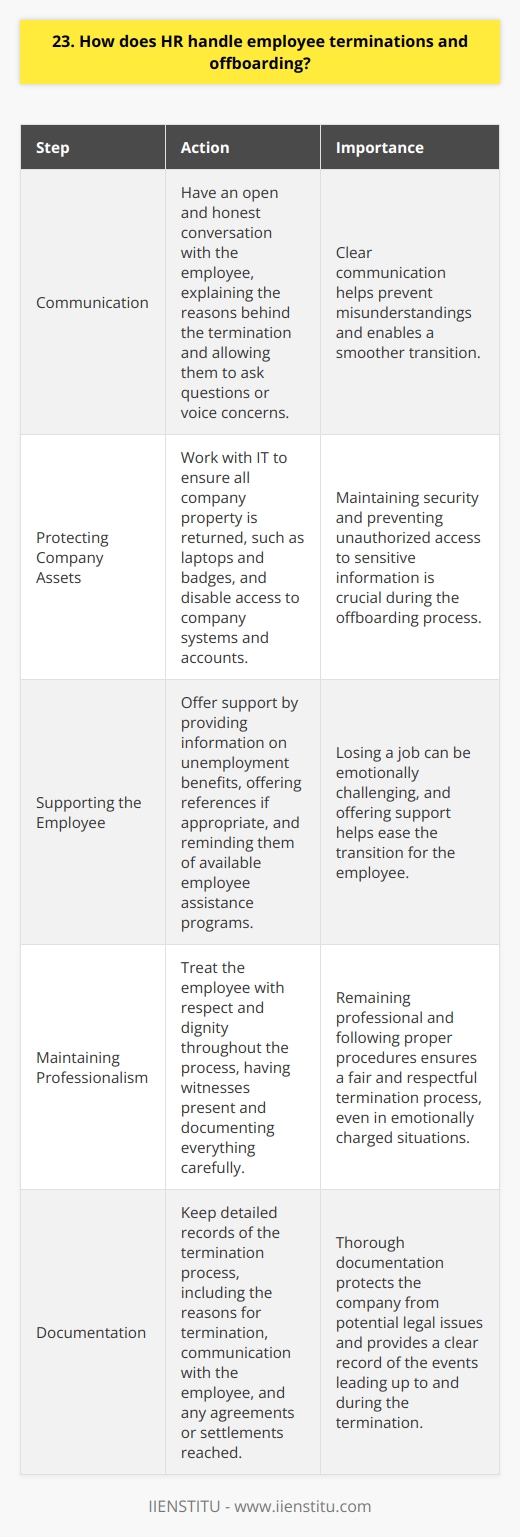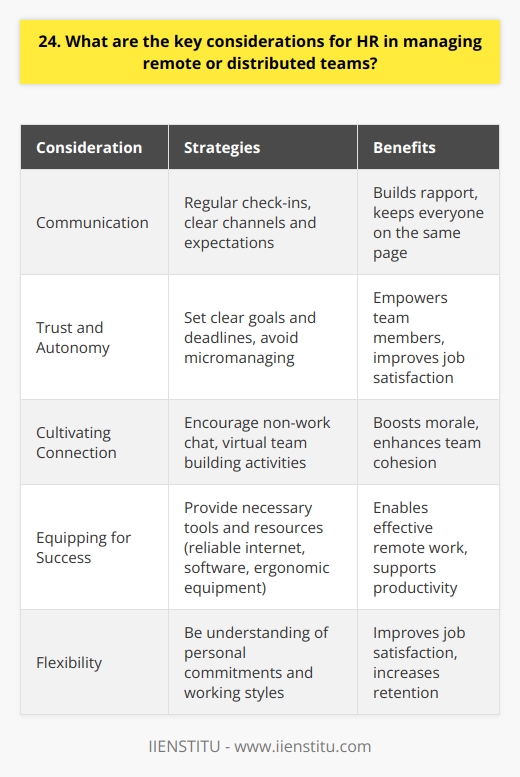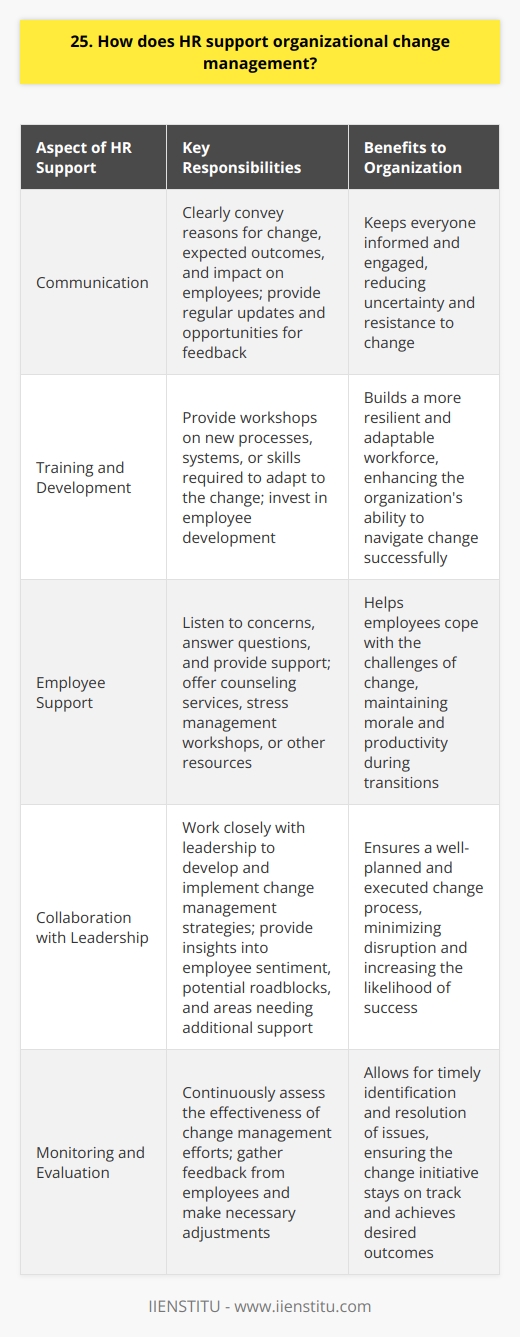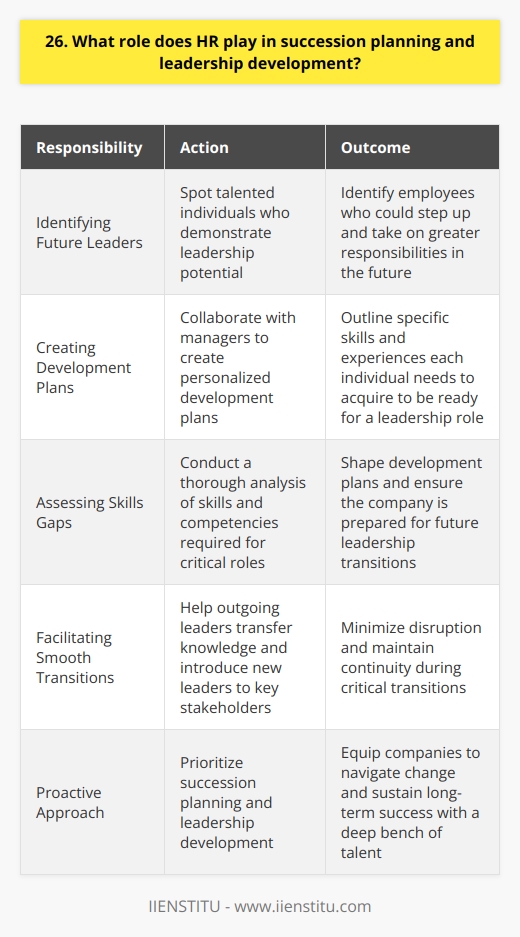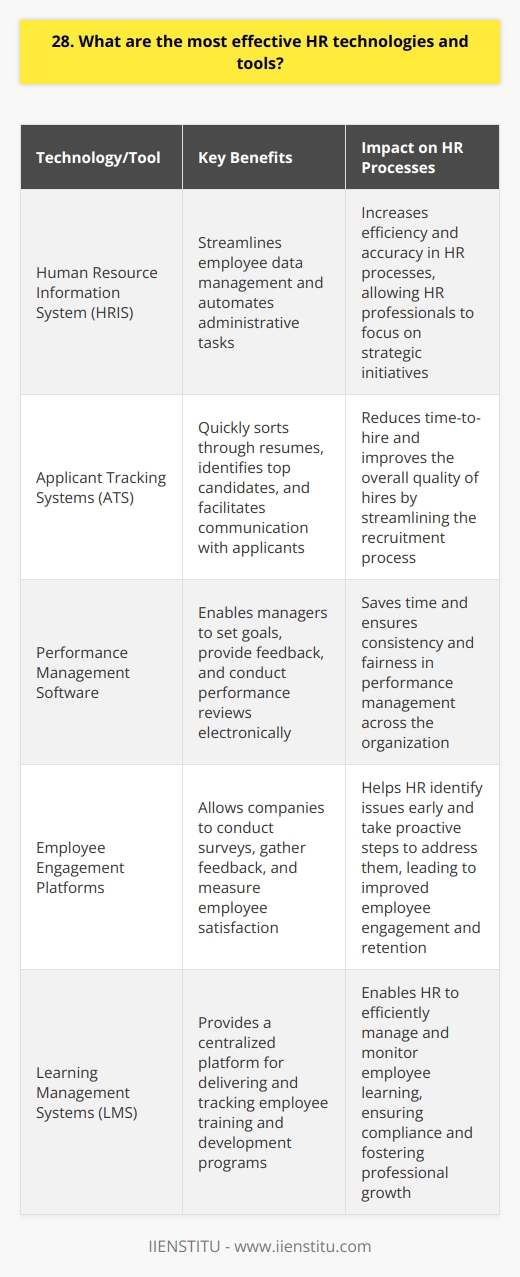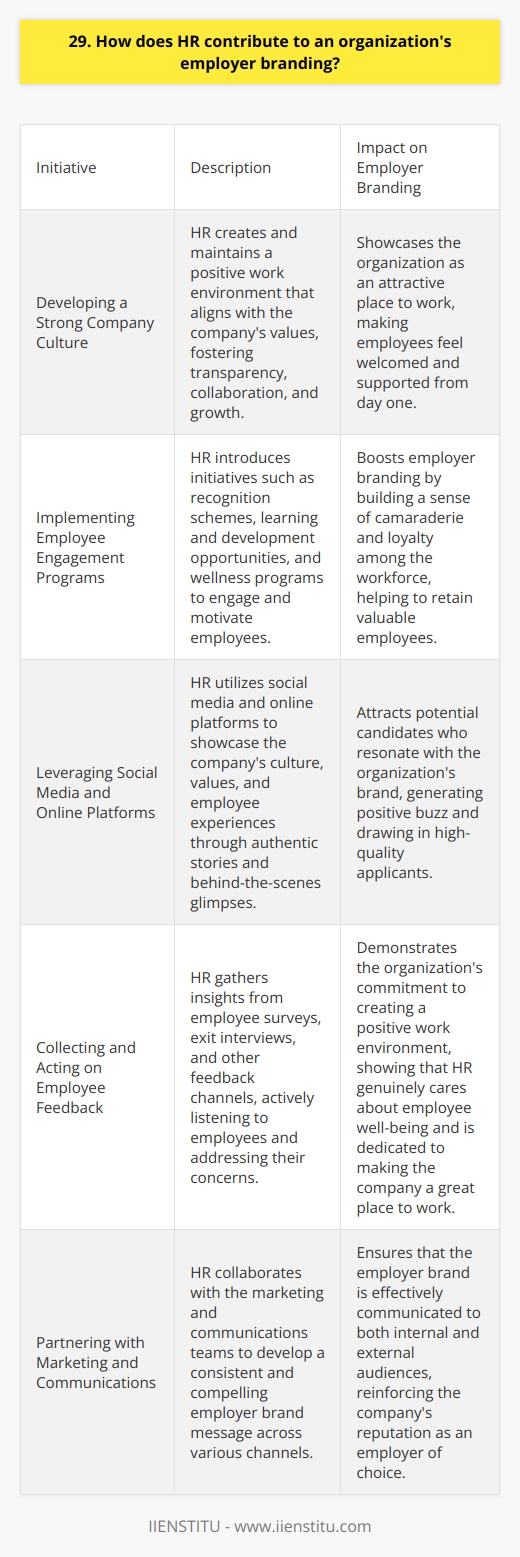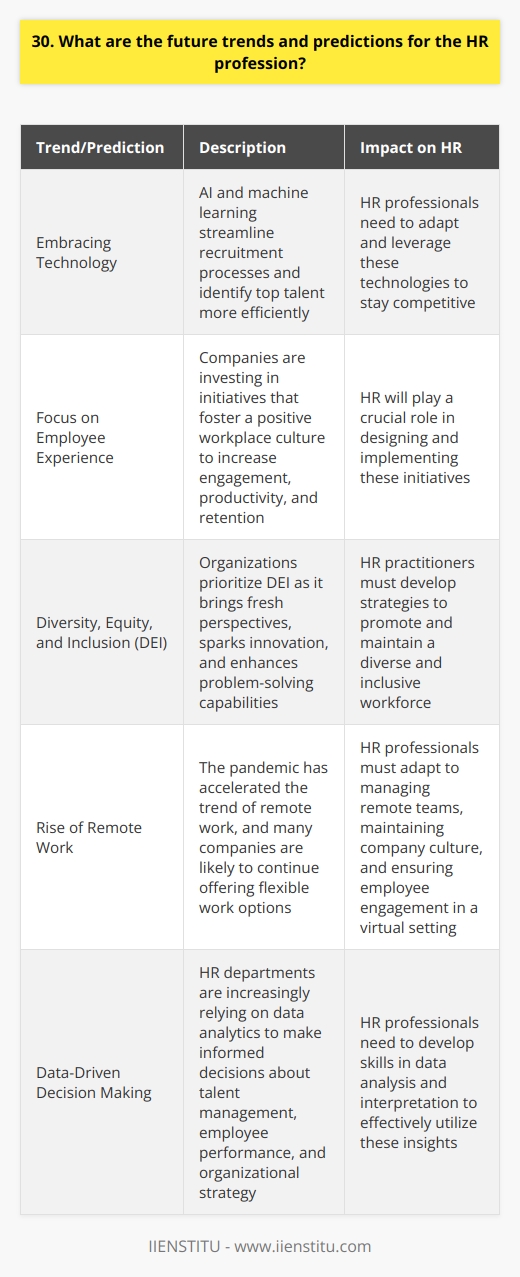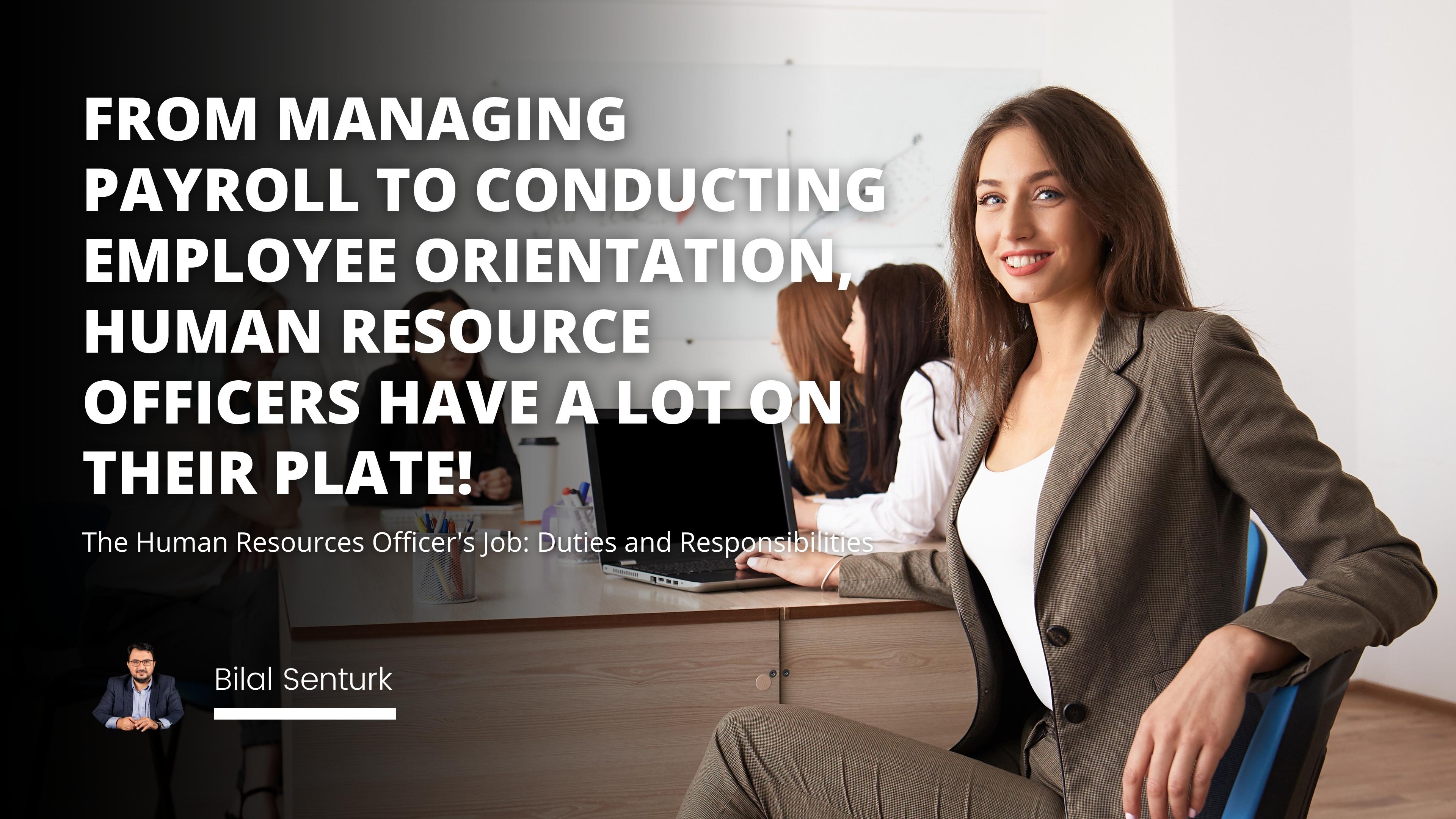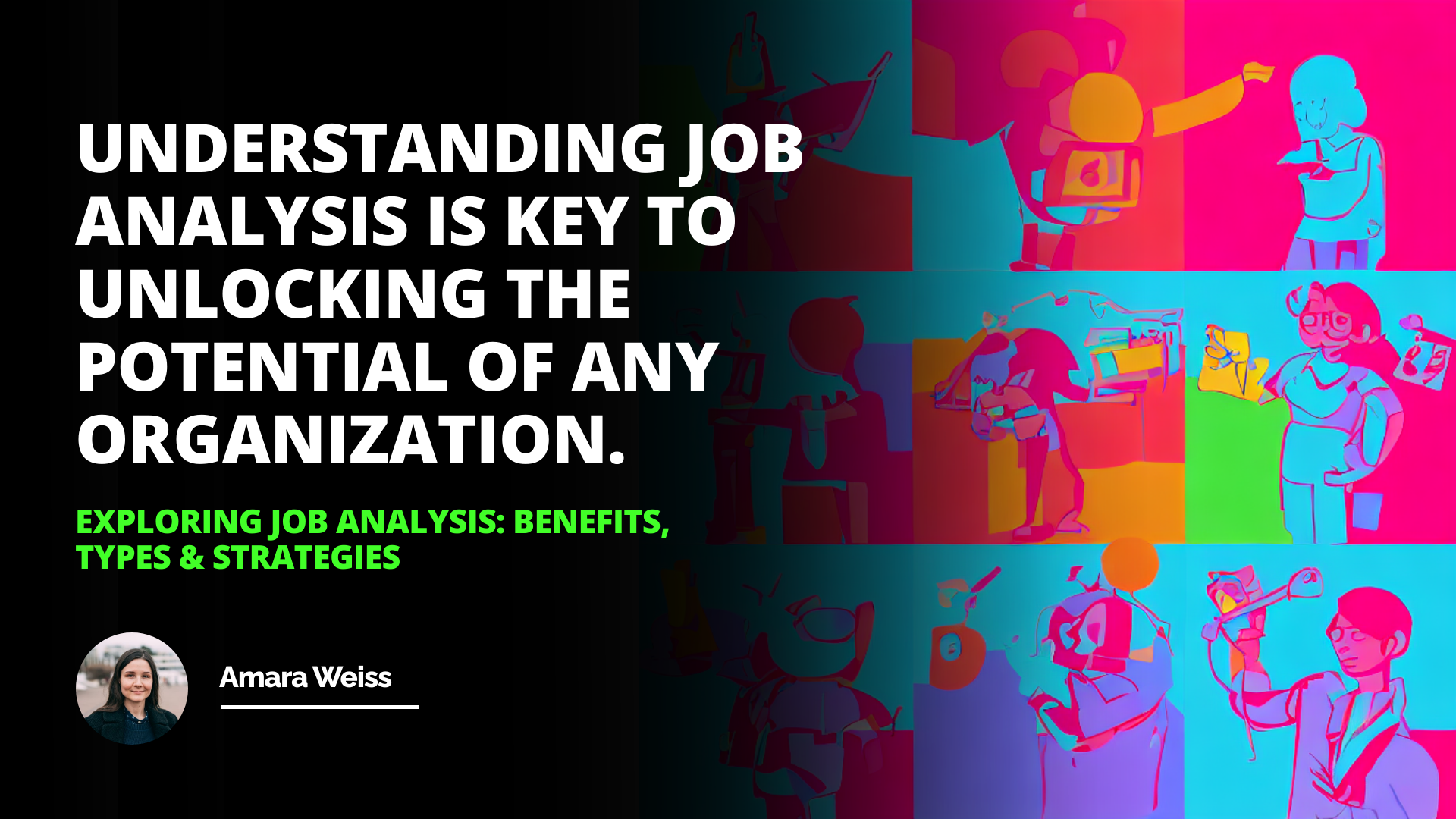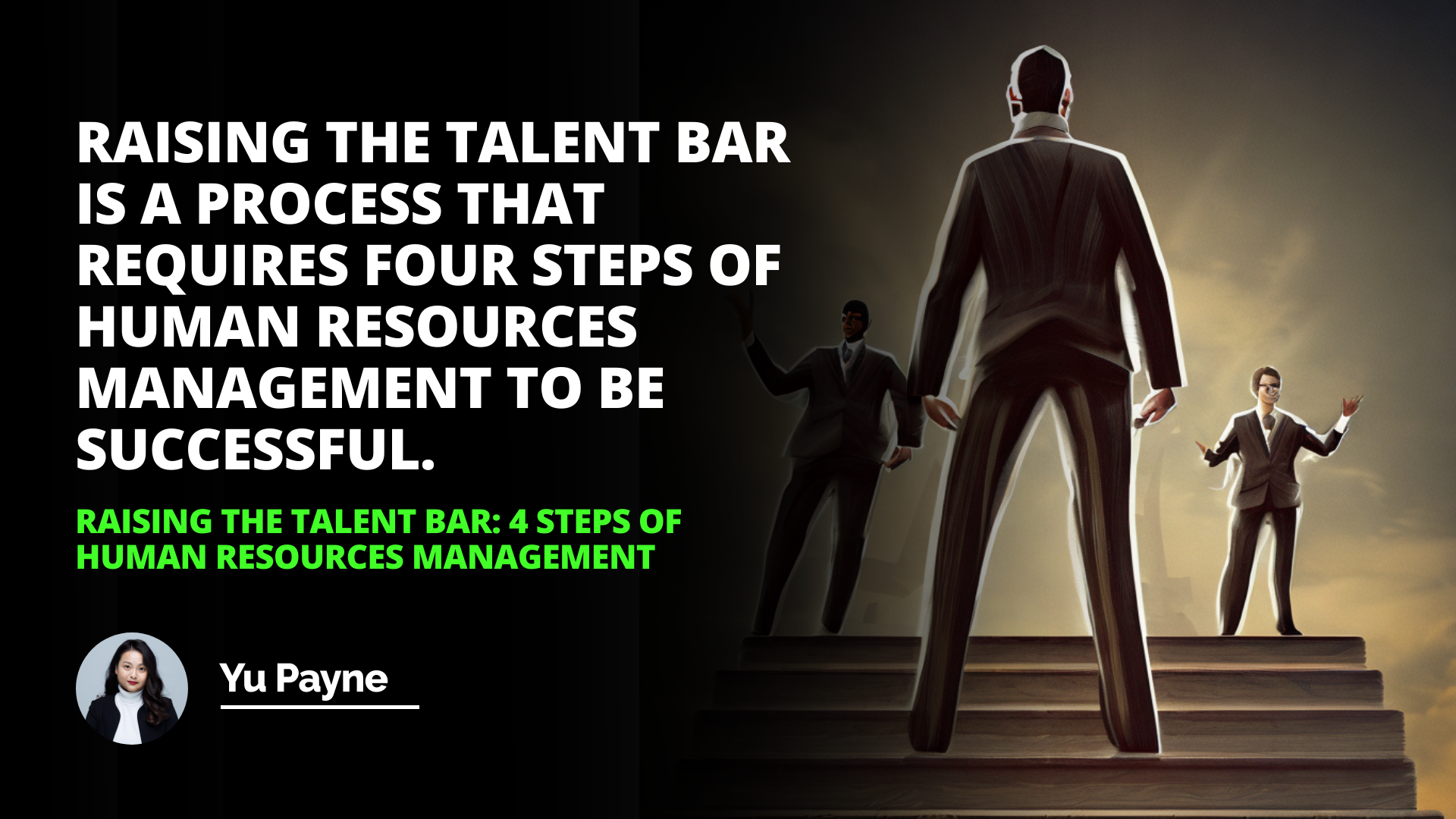In today's dynamic corporate landscape, the significance of human resources cannot be overstated. As businesses evolve and workplace cultures shift, the roles within the HR department have grown more specialized, catering to various aspects of employee management and organizational development. But what do these roles entail? And for those considering a career in human resources, how can understanding these roles guide their professional journey?
Whether you're an HR aspirant or simply curious about the intricate web of roles within this department, this comprehensive guide on human resources job description promises to shed light on every pivotal position. From the foundational responsibilities of an HR assistant to the visionary leadership of the Chief Human Resources Officer, we'll journey through the multifaceted world of HR roles, ensuring you gain clarity, insight, and inspiration. So, let's embark on this exploration of HR's many faces and find out what it truly means to be the backbone of an organization.
Related Course: Leadership Course Online
Human Resources Job Description: An Overview
The term human resources description might conjure images of paperwork, recruitment processes, or even the daunting task of conflict resolution. However, at its core, human resources is about people. It's about ensuring that an organization's most valuable assets - its employees - are nurtured, developed, and retained. As businesses expand and industries transform, the HR department has evolved from just a supporting function to a strategic partner that plays an integral role in shaping the company's future.
In the early days, HR might have been primarily concerned with hiring and administrative tasks. Today, it encompasses various specialties from talent acquisition, employee engagement, and organizational development to even areas like corporate social responsibility. This shift has given rise to a plethora of specialized roles, each tailored to address the specific needs of modern businesses.
Imagine HR as the heart of an organization, pumping life, culture, and vitality into every department. Just as the heart has various chambers and valves working in harmony, the HR department boasts a range of positions, each playing a pivotal role. In the subsequent sections, we'll dive deep into these roles, demystifying their responsibilities, fundamental skills, and their invaluable contribution to the larger organizational machinery. Whether you're eyeing a role as an HR generalist, specialist, or even the director, understanding the nuances of each position is the first step in carving a successful career in this ever-evolving domain.
1. Human Resources Manager Job Description
Recruitment Process Outsourcing (RPO): A Comprehensive Study on its Facets
Variable Pay: An In-depth Look at Modern Compensation Strategies

Often seen as the captain steering the ship of an organization's HR endeavors, the human resources manager holds a position of great responsibility and impact. It's not just about managing a team; it's about creating a bridge between the top management and the employees, ensuring that both parties are aligned and moving in tandem toward common goals.
Responsibilities:
Strategic Planning: Crafting and implementing HR strategies that support the business objectives.
Talent Management: Overseeing the recruitment, training, and retention processes to ensure the best talent is onboarded and nurtured.
Employee Relations: Handling grievances, managing conflicts, and ensuring a harmonious workplace.
Compliance and Regulation: Keeping up-to-date with the latest labor laws and ensuring the organization remains compliant.
Key Skills:
Leadership: Directing the HR team with clarity and vision.
Decision-making: Often faced with tough choices, an HR manager must make decisions that benefit the employees and the organization.
Strategic Thinking: Beyond day-to-day tasks, it's about understanding the big picture and aligning HR practices with the company's long-term vision.
Effective Communication: Conveying messages and strategies to the HR team and the broader organization.
Salary and Growth:
As of recent data, the average salary for an HR manager in the U.S. ranges from $70,000 to $120,000 annually, depending on the industry, location, and company size. With experience and proven expertise, many HR managers climb the ladder to take on directorial roles or become Chief Human Resources Officers, making this position a pivotal step in the HR hierarchy.
In essence, the role of a human resources manager is akin to that of a maestro, orchestrating different sections of the orchestra (or, in this case, the organization) to produce harmonious melodies. Their influence shapes company culture and employee morale and can significantly impact an organization's success. If leading with empathy, vision, and strategy resonates with you, this is the role you've been looking for.
2. Human Resources Assistant Job Description

The human resources assistant may not headline the marquee, but they are the unsung heroes of the HR department. This entry-level position is critical, as HR assistants form the operational backbone, ensuring the smooth execution of day-to-day functions. They are the meticulous organizers, the diligent note-takers, and often, the warm first point of contact for new employees entering the organization.
Responsibilities:
Administrative Support: Handling HR-related documentation, from contracts to employee records.
Recruitment Assistance: Aiding in the recruitment process by scheduling interviews and communicating with candidates.
Data Management: Maintaining detailed databases of employee information, benefits, and performance records.
Employee Onboarding: Assisting in the onboarding process to ensure seamless integration of new hires into the company culture.
Key Skills:
Organizational Ability: Juggling multiple tasks efficiently and maintaining a high level of organization.
Attention to Detail: Ensuring all documentation is accurate and up to date.
Communication Skills: Interacting with employees and management, conveying information with clarity.
Discretion: Handling sensitive information with integrity and confidentiality.
Salary and Career Path:
An HR assistant's salary typically starts from the low $ 30,000 and can go up to $50,000 with experience and additional responsibilities. More importantly, it's a role that offers a vast learning curve and a comprehensive understanding of HR functions. It often serves as a launchpad for more specialized roles or leadership positions within HR.
The HR assistant role is ideal for those looking to dip their toes into the human resources pool, providing a panoramic view of what a career in HR entails. For many, it's a proving ground—a place to hone skills, acquire knowledge, and build a foundation for a rewarding HR career. If you're a stickler for detail and take pride in supporting others, stepping into an HR assistant role could be your gateway to a future where people and processes converge.
3. Human Resources Generalist Job Description

Moving further into the intricate labyrinth of HR roles, we encounter the human resources generalist. With a multifaceted role, the HR generalist is often considered the Swiss Army knife of the HR world. Armed with a comprehensive skill set, they navigate various aspects of human resources, from recruitment to performance management, making their role both challenging and rewarding.
Responsibilities:
Recruitment and Staffing: Managing the entire recruitment cycle, from job postings to final interviews.
Training and Development: Identifying training needs and facilitating programs to upskill employees.
Performance Management: Overseeing appraisal cycles, giving feedback, and handling promotions or role transitions.
Employee Engagement: Crafting strategies to boost morale, engagement, and a positive work environment.
Benefits and Compensation: Administering payroll bonuses and understanding market trends to ensure competitive compensation.
Key Skills:
Multitasking: With a vast array of responsibilities, managing multiple tasks simultaneously is crucial.
Effective Communication: Bridging employees and management, ensuring transparent and open channels of dialogue.
Analytical Thinking: Evaluating data to make informed decisions, be it in recruitment or compensation strategies.
Empathy: Understanding the needs and concerns of employees, fostering trust and approachability.
Salary and Opportunities:
Human resources generalists can expect an average salary between $50,000 and $75,000, influenced by location, industry, and years of experience. With further specialization and years under the belt, generalists often pivot into more specialized roles or move into managerial capacities.
The role of an HR generalist is akin to that of a tightrope walker, balancing various HR functions while ensuring forward momentum. Their broad knowledge base allows flexibility and adaptability, making them invaluable assets to any HR team. Suppose you're someone who thrives in diverse environments and enjoys wearing multiple hats. In that case, the generalist position might be the perfect fit, offering a bird's-eye view of the vast HR landscape.
4. Human Resources Specialist Job Description

While the HR generalist struggles with diverse tasks, the human resources specialist thrives in-depth and with expertise. Specialists are the deep divers of the HR world, immersing themselves in a particular segment of human resources, be it talent acquisition, employee relations, benefits, or training. Their focused expertise brings precision to the process, making them the go-to experts for specific HR challenges.
Responsibilities:
Focused Expertise: Whether managing employee benefits, rolling out specific training programs, or leading talent acquisition campaigns, their primary responsibility lies in mastering and operating a particular HR domain.
Continuous Learning: Staying updated with the latest trends, tools, and best practices within their specialized domain.
Collaboration: Working in tandem with other HR roles to ensure the seamless integration of their specialized services.
Advisory: Serving as the consultant for their domain, advising the HR team and, sometimes, the broader organization on best practices.
Key Skills:
Expertise in Specialized Domain: A deep understanding of their chosen HR area.
Problem-solving: Crafting solutions tailored to challenges within their specialization.
Attention to Detail: Ensuring thoroughness in tasks, benefit allocation, or candidate screening.
Continuous Learning: A hunger to stay updated and keep refining their expertise.
Salary and Growth Prospects:
Salaries for HR specialists vary based on their expertise, but on average, they can expect earnings ranging from $55,000 to $85,000. As they deepen their knowledge and gain experience, they can move up to supervisory or managerial roles within their specialization or even transition to broader HR leadership positions.
The life of a human resources specialist is characterized by depth, continuous learning, and a passion for their chosen domain. Their nuanced expertise often becomes the linchpin for critical organizational decisions. If diving deep, refining expertise, and being the subject-matter expert excites you, then the path of an HR specialist awaits, offering a journey of continuous growth and profound impact.
5. Human Resources Director Job Description

At the helm of the HR department, guiding its strategic direction and ensuring alignment with organizational goals, stands the human resources director. This role, sometimes synonymous with the director of human resources, is pivotal, merging leadership, vision, and execution to foster an environment where employees and the business thrive in tandem.
Responsibilities:
Strategic Direction: Setting the tone for the HR department, crafting strategies that align with the organization's vision and objectives.
Team Leadership: Overseeing the entire HR team, ensuring efficiency, collaboration, and continuous growth.
Organizational Development: Analyzing company culture, structures, and processes and spearheading initiatives for improvement and growth.
Stakeholder Management: Collaborating with other department heads and top management, ensuring HR strategies align with overall business goals.
Key Skills:
Strategic Vision: The ability to see the bigger picture and align HR practices with it.
Leadership and Mentorship: Guiding, inspiring, and developing the HR team.
Decision-making: Making crucial choices impacting the HR department and the broader organization.
Negotiation and Diplomacy: Managing internal and external stakeholders, balancing differing views, and reaching consensus.
Salary and Future Path:
An HR director's compensation typically ranges from $90,000 to $150,000 or more, contingent on the organization's size, industry, and location. With further experience and a track record of success, the next step is often ascending to roles like the Chief Human Resources Officer or other C-suite positions.
Being a human resources director is much like being the captain of a ship. You have a crew (the HR team) and a destination (the organization's goals). The challenge lies in navigating the waters, managing the crew, and ensuring that the ship not only reaches its destination but also provides a fulfilling journey for everyone on board. Aspire to lead, shape, and make a significant impact at an organizational level. This leadership role in HR might be your calling.
6. Human Resources Coordinator Job Description

Acting as the glue that holds the HR department together, the human resources coordinator is the harmonizer, ensuring smooth communication, organization, and alignment within the team. Their role, while not always in the spotlight, provides the foundational support that allows the entire HR machinery to function seamlessly.
Responsibilities:
Scheduling and Organization: Coordinating meetings, interviews, training sessions, and other HR events.
Documentation: Ensuring all HR-related documents, from employee records to policy updates, are systematically organized and accessible.
Liaison: As a bridge between various HR roles, facilitating communication and collaboration.
Support Functions: Assisting in various HR processes, from recruitment to onboarding and training, providing administrative and organizational support.
Key Skills:
Organizational Prowess: Maintaining clarity amidst chaos, ensuring everything is well-organized and on schedule.
Effective Communication: Bridging gaps and ensuring smooth communication between team members and other departments.
Problem-solving: Quickly addressing and resolving administrative or organizational challenges.
Multitasking: Juggling diverse tasks while ensuring each gets the attention it deserves.
Salary and Growth Trajectory:
The average salary for an HR coordinator typically falls between $40,000 to $60,000, depending on factors like location, industry, and company size. As they gain experience and further their skills, coordinators often transition into specialist or managerial roles within HR.
If the HR department was likened to an orchestra, the human resources coordinator would be the stage manager. Behind the scenes, yet indispensable. Ensuring each instrument is tuned, every musician is in place, and the entire ensemble is set to deliver a flawless performance. If you have a knack for organization, enjoy facilitating collaboration, and thrive in roles that demand meticulous attention to detail, the coordinator role could be your ticket to a fulfilling HR journey.
7. Human Resources Business Partner Job Description

Stepping away from the traditional confines of HR and merging business strategy with people management, we have the human resources business partner (HRBP). This role signifies the evolution of HR, demonstrating its strategic importance in contemporary organizations. HRBPs bridge HR strategy and business goals, ensuring talent management aligns seamlessly with business outcomes.
Responsibilities:
Strategic Alignment: Working closely with business leaders to align HR strategies with business goals.
Talent Management: Identifying talent needs gaps and devising strategies to attract, develop, and retain the right talent for specific business units or projects.
Performance Analysis: Evaluating how HR initiatives impact business performance and making necessary adjustments.
Change Management: Spearheading organizational change initiatives, ensuring they align with business objectives and are smoothly executed.
Key Skills:
Business Acumen: Understanding the nuances of the business, its challenges, and opportunities.
Strategic Thinking: Ability to devise HR strategies that directly contribute to business goals.
Stakeholder Management: Building and maintaining relationships with key business leaders and decision-makers.
Adaptability: Staying agile and responsive to the ever-changing dynamics of business needs and market conditions.
Salary and Career Path:
Compensation for HR business partners can vary based on their experience, the industry, and the organization's size but typically ranges between $70,000 to $100,000 or more. As they consolidate their position and prove their strategic value, HRBPs can move to senior leadership roles or even transition into broader business strategy roles.
Imagine the HR business partner as the translator in a global summit. While both parties (HR and Business) speak 'business,' they sometimes have different dialects. The HRBP ensures both sides understand each other perfectly, fostering a symbiotic relationship where people's strategies propel business success. If you're keen on straddling the worlds of HR and business strategy, wearing dual hats, and making impactful contributions, the HRBP role beckons.
8. Chief Human Resources Officer Job Description

Taking the helm of the entire human resources fleet is the chief human resources officer (CHRO). This C-suite role signifies the epitome of HR leadership, bringing together strategy, vision, and execution on a grand scale. The CHRO is a trusted advisor to the CEO and board, emphasizing the significance of talent in driving organizational success.
Responsibilities:
Organizational Strategy: Defining and directing the overarching HR strategy per the company's mission, vision, and objectives.
Leadership: Guiding and mentoring the HR team, ensuring collaboration, efficiency, and continuous growth.
Stakeholder Management: Collaborating closely with other C-suite executives to align HR initiatives with business goals.
Risk Management: Proactively identifying and mitigating potential HR-related risks to the organization.
Key Skills:
Strategic Insight: The foresight to craft HR strategies that not only address current needs but anticipate future challenges.
Influential Leadership: Inspiring and guiding the HR team and the broader organization toward a unified vision.
Decision-making: Making high-stakes decisions that impact the organization's workforce and culture.
Diplomacy and Negotiation: Balancing diverse viewpoints and driving consensus at the top echelons of the company.
Salary and Future Path:
Given the seniority of the CHRO role, compensation is typically in the higher echelons, often exceeding $150,000, and can go much higher depending on the company's size, industry, and geographic location. While the CHRO role is often the pinnacle for HR professionals, some transition to broader executive roles, advisory positions, or board memberships.
The CHRO is akin to the maestro of a grand symphony, orchestrating a harmonious performance where every section, from strings to percussion, plays in perfect sync. They ensure that the symphony (the company) delivers a captivating performance, resonating with both the audience (stakeholders) and the musicians (employees). For those with a vision, leadership prowess, and the desire to shape the future of organizations at the highest level, the CHRO role awaits, promising challenges, influence, and immense rewards.
9. Human Resources Recruiter Job Description

Amidst the vast universe of HR, the stars that shine brightest, ensuring the organization's galaxy is filled with the most promising talents, are the human resources recruiters. They are the gatekeepers, the first point of contact for potential employees, making their role pivotal in shaping the organization's workforce and, by extension, its culture and success.
Responsibilities:
Talent Acquisition: Identifying, attracting, and screening potential candidates for various organizational roles.
Stakeholder Collaboration: Working closely with departmental heads and hiring managers to understand specific job requirements and desired candidate profiles.
Candidate Experience: Ensuring a positive, transparent, and seamless experience for all applicants, reinforcing the organization's employer brand.
Market Analysis: Keeping abreast of recruitment trends, salary benchmarks, and talent availability in the market.
Key Skills:
People Skills: Building rapport and relationships with potential candidates.
Judgment and Analysis: Assessing candidate suitability based on their skills, experience, and cultural fit.
Negotiation: Crafting attractive offers and ensuring the candidate and organization's needs are met.
Proactivity: Staying ahead of hiring needs and building a talent pipeline.
Salary and Career Progression:
Typically, the salary for HR recruiters ranges from $45,000 to $70,000, depending on the industry, location, and size of the company. With experience, they can move into senior talent acquisition roles, recruitment strategy, or even broader HR leadership positions.
If the world of HR was a grand theater production, human resources recruiters would be the casting directors. They handpick the actors, ensuring each character – from lead roles to supporting casts – brings the script (company vision) to life on stage (in the workplace). If you possess a keen eye for talent, relish human interaction, and are driven by the thrill of finding the perfect match, the recruiter's role offers a challenging yet rewarding career in the HR domain.
10. Human Resources Intern Job Description

Embarking on the first steps of their HR journey, human resources interns are fresh, eager minds ready to soak in the intricacies of the HR world. While they might be novices, their role is essential. They offer support, fresh perspectives, and, often, innovative ideas that breathe new life into standard HR processes.
Responsibilities:
Assistive Tasks: Supporting various HR functions, from recruitment to employee engagement, under the guidance of experienced HR professionals.
Data Management: Assisting in the organization, updating, and maintenance of employee records and other HR databases.
Research: Gathering data on the latest HR trends, tools, and best practices.
Event Participation: Being actively involved in organizing and participating in HR-related events, workshops, and training sessions.
Key Skills:
Eagerness to Learn: An insatiable curiosity and readiness to immerse oneself in diverse HR tasks.
Attention to Detail: Ensuring data accuracy and thoroughness in all tasks.
Communication: Effectively interacting with team members and sometimes with employees across the organization.
Time Management: Juggling various tasks and deadlines efficiently.
Related Course: Online Time Management Course
Salary and Career Path:
Given their entry-level nature, HR intern positions are often unpaid or have a modest stipend, ranging from $10 to $20 per hour. However, the real reward lies in the invaluable experience, mentorship, and the doors it opens for future HR roles.
Drawing an analogy, if HR was a bustling city, the human resources intern would be akin to an explorer setting foot in this vast metropolis for the first time. With a map (guidance) in hand and a backpack filled with essentials (educational background), they are ready to navigate the alleys, learn the culture, and perhaps, eventually, become one of the city's leading citizens. For those aspiring to build a career in HR, starting as an intern provides a holistic view of the field, laying a solid foundation for future growth and specialization.
Conclusion: The Gateway to Mastering HR Roles
Navigating the intricate maze of human resources roles can indeed be a challenge. From the hands-on responsibilities of an HR assistant to the strategic insights demanded by a CHRO, each position offers its unique set of challenges and rewards. But remember, every journey begins with a single step. And in today's digital age, taking that step is easier than ever. Whether you're starting out or looking to ascend to higher HR realms, a human resources management online course can be a catalyst, providing you with the tools, insights, and expertise to excel in this ever-evolving domain. After all, in the world of HR, continuous learning and adaptation aren't just recommendations – they're prerequisites. So, why wait? Dive into the dynamic universe of HR and carve your niche. The stage is set, and the spotlight awaits!
